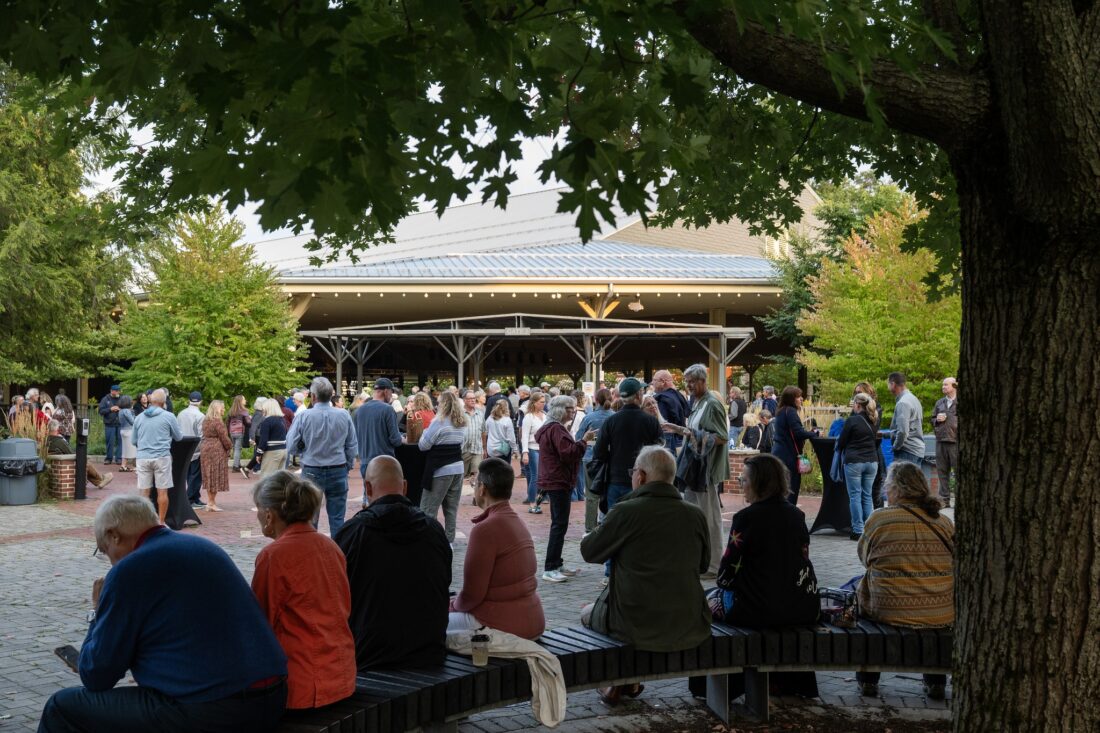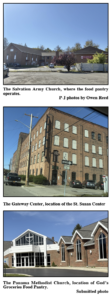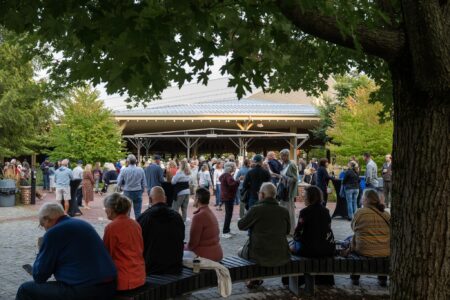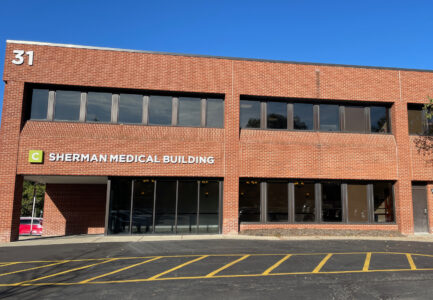Chautauqua Institution Tweaking Programs

Concertgoers are pictured milling around outside the Chautauqua Institution Amphitheater before the Bonnie Raitt concert in early September. While there are going to be program reductions coming as part of the institution’s financial reset, additional “shoulder season” events like the Raitt concert are in the institution’s future plans to help boost revenues.
Chautauqua Institution will run leaner in 2026 after making millions of dollars of cuts to personnel and operations – though programs will see less drastic cutbacks.
Kyle Keogh, interim Chautauqua Institution CEO, said during a recent webinar viewed live by more than 800 institution residents, that the institution has secured $1.628 million of the needed $2 million in cuts from operations while making $3.3 million in personnel cuts, more than the $3 million goal. Programming had a goal of $1 million in savings, with $685,000 confirmed. Keogh has said previously it is important for the institution to protect aspects of the program that are most important to patrons. Surveys have found the 10:45 a.m. lecture series had the highest score, with 22% of patrons saying they most enjoy the lecture series of any institution offerings. That was followed by Chautauqua Symphony Orchestra performances (15%) and ambiance/sense of community (13.9%).
“There are no reductions to the lecture series,” said Deborah Sunya Moore, institution chief program officer and senior vice president. “You may remember that Kyle shared those numbers on the survey of what’s important to you, and the Chautauqua lecture series was right at the top. The only changes are that we will bring the bringing more new and fabulous speakers.”
Keogh said he is optimistic about the strength of Week 6 of the 2026 season, which will focus on America at 250: In Partnership with the National Constitution Center and The Colonial Williamsburg Foundation. Filmmaker Ken Burns and Jeffrey Rosen, president and CEO of the National Constitution Center, are listed as lecturers.
“We feel that every venue inside Chautauqua will be filled that week,” Keogh said. “It will really show the full capacity of Chautauqua. What we’re hoping is that this doesn’t draw from all the other weeks at Chautauqua and actually draws new attendance for us rather than just creating lighter weeks around it.”
There are cuts coming to some programs, however. The institution is cutting one week from its Music School Festival Orchestra, a savings of $50,000, while adding a week to CHQ on a Budget, a program that offers discounted rates for visitors in hopes of getting them to become regular Chautauqua Institution visitors. Adding a week to Chautauqua on a Budget is estimated to boost revenues by $40,000. Scholarships are being eliminated at a savings of $150,000; Chautauqua Theater Company will drop one main stage performance to help deal with increasing costs, with the company’s budget $100,000 less in 2026 than it was in 2025.
The interfaith lecture series will decrease from five lectures a week to four, with the fifth 2 p.m. lecture to be filled by a Chautauqua Literary Science Circle speaker who typically spoke on Thursdays. The institution’s Climate Change Initiative is being eliminated from the institution’s budget, a savings of $103,000. Of local interest, the Battle of the Books, an initiative that involved several Chautauqua County schools, is being paused for a year while the institution pursues funding to support the program. Pausing Battle of the Books reflects the institution’s desire to focus on additional events shortly before the summer season or shortly after the summer season.
“One example I had given, Battle of the Books, was an activity that we did during the year,” Sunya Moore said. “It not only takes an incredible amount of staff time but we also pay to do it for the local schools. We hope that we might have another funding source. One more example of an off-season program that we are not doing in 2026 as planned would be our writer’s lab. It was the Kwame Alexander writer’s lab and conference. We had a business plan that showed we hope to have some growth by doing that in D.C. this year and the growth didn’t come, so we did make the hard decision to cancel that for this year.”
Other tweaks include a decrease in travel, performing and visual arts support totaling $54,000. To balance that cut, some of the institution’s performing arts schools will be given the opportunity to perform in the amphitheater, a move that saves roughly $40,000.
Keogh and Moore also discussed a proposal to purchase a new sound system. While the system would cost $1.2 million, it would save the institution every year from paying to rent a system while also decreasing overhead for events like the September Bonnie Raitt concert. Such “shoulder season” concerts are part of the institution’s plan to boost revenue outside of the summer season – and not renting audio equipment will increase profits from those performances.
“Shoulder seasons, the hotel operates better when we get shoulder season work,” Keogh said. “We have conferences, groups and, most importantly weddings. There have been multiple weddings here. I’ve seen a lot of Chautauquans on the grounds enjoying a beautiful fall and the incredible grounds with their wedding parties. And then even started to look at some concerts. The Bonnie Raitt concert was a pretty tremendous success. We sold 3,600 tickets, so it’s every seat that is not an obstructed view. We made north of $130,000 on it net, and it raised the whole area. … It lifted Bemus, it lifted Mayville, the restaurants in the whole area. It’s a way for us to help out and a discussion I’m going to have later (Sept. 22) with the county executive about making sure that we’re important in this county and that we can work together on some of these things.”





